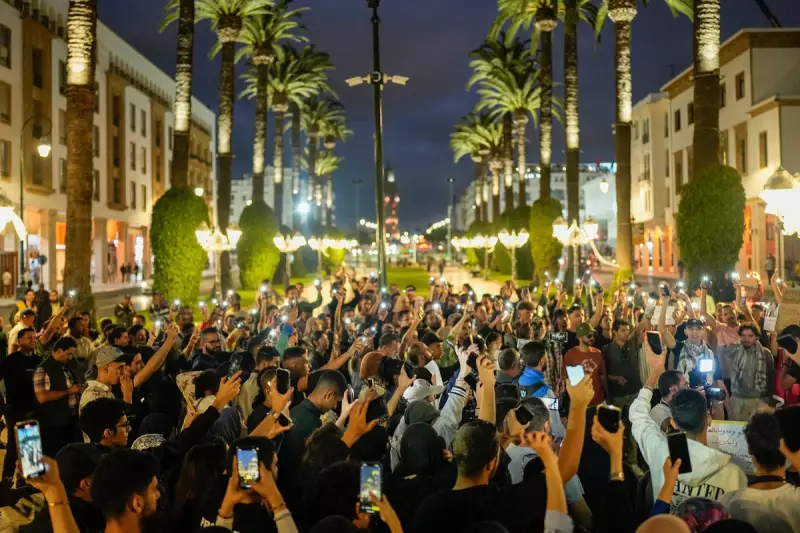
Moroccan authorities have launched a sweeping crackdown on a burgeoning protest movement that found its voice through the viral video platform TikTok, detaining dozens of young demonstrators in the coastal city of Casablanca.
The protests, organised primarily by disaffected youth using the hashtag #WeWantToLive, erupted over allegations of systemic discrimination and economic marginalisation. What began as digital discontent quickly spilled onto the streets, prompting a robust police response that has drawn criticism from human rights advocates.
Digital Dissent Meets Heavy-Handed Response
According to local reports, security forces arrested numerous participants following demonstrations that saw protesters marching through Casablanca's streets. The movement's rapid organisation through TikTok highlights the growing role of social media in mobilising political dissent among Morocco's youth population.
One detained protester, speaking to the independent Moroccan news outlet Ettounsia, revealed they faced interrogation about their social media activities and alleged involvement in 'destabilising' actions. 'They asked me why I was protesting and whether I used TikTok to call for demonstrations,' the anonymous source disclosed.
Government Justifies Measures as Necessary for Stability
Moroccan officials have defended the crackdown, framing it as a necessary measure to maintain public order and national security. The interior ministry has characterised the protests as unauthorised gatherings that violated Moroccan law.
This incident isn't the first time Moroccan authorities have targeted digital platforms. The North African kingdom previously banned TikTok outright in 2023, citing concerns about the spread of 'harmful content' that threatened user security and public safety.
Broader Pattern of Digital Suppression Emerges
The recent events in Casablanca fit into a wider pattern across Morocco, where authorities have increasingly monitored and restricted online expression. Previous years have seen arrests related to social media posts, with critics arguing the government is using security concerns as pretext to silence dissent.
As digital platforms become increasingly central to political organising, particularly among younger demographics, the tension between free expression and state security continues to intensify. The Casablanca protests represent just the latest flashpoint in this ongoing struggle between digital activism and governmental control.





